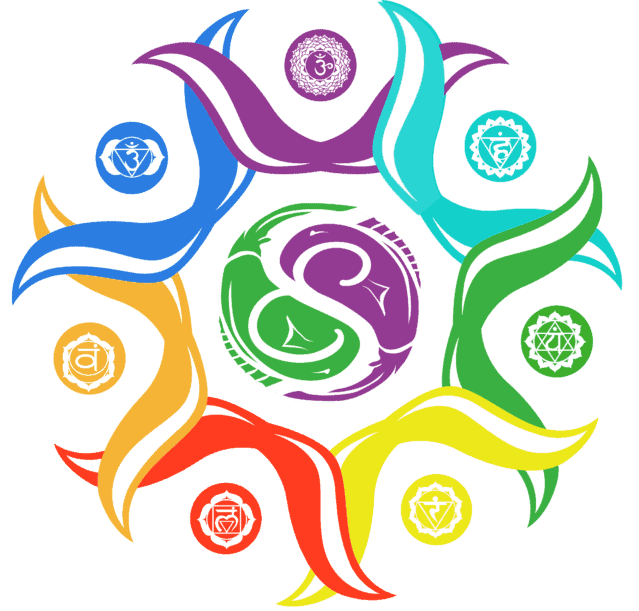Alcohol Addiction Treatment in New Jersey
At Enlightened Recovery, we understand the profound impact that alcohol use disorder can have on individuals and their loved ones. Our alcohol addiction treatment in New Jersey provides personalized care that is suited to each individual’s unique needs and circumstances. We recognize the courage it takes to reach out for help. Whether someone is unsure about what is the first step toward getting treatment for alcohol addiction, embarking on the early stages of alcohol use disorder (AUD) recovery, or seeking ongoing support, we walk alongside them on this journey toward a brighter, healthier tomorrow.
Understanding Alcohol Addiction
In 2021, the National Survey on Drug Use and Health (NSDUH) revealed that 29.5 million individuals aged 12 and above grappled with alcohol use disorder in the previous year. AUD isn’t just a statistic; it’s a deeply personal battle affecting countless lives. It’s a deeply personal struggle, but it’s also about finding the courage to confront it, seek help, and believe in recovery.
Our approach is rooted in empathy and understanding because we know that each individual’s journey is unique. From the moment someone reaches out for help, they become a part of our community, where support, compassion, and hope flourish.
Societal Views of Alcohol Consumption
Alcohol has been consumed for at least 7,000 to 10,000 years. Ancient civilizations, including the Chinese, Egyptians, Greeks, and Romans, made alcoholic beverages from fermented fruits, grains, and honey. The ancient Sumerians even had a goddess of brewing and beer named Ninkasi.
Today, alcohol is legal in most parts of the world. However, age restrictions, sales limitations, and cultural norms vary widely. While many societies accept moderate drinking as a normal part of social interaction, excessive or irresponsible drinking is discouraged or condemned.
In some cultures or religious traditions, such as Islam, the consumption of alcohol is prohibited or heavily discouraged. On the other hand, in countries like France and Italy, wine is deeply ingrained in the culture, often accompanying meals and seen as a part of the national identity.
The health risks and benefits of alcohol have been extensively studied. Moderate alcohol consumption can have certain health benefits for some people, particularly regarding cardiovascular health. However, excessive or chronic alcohol consumption is linked to a range of health issues, including liver disease, cancer, and neurological disorders, as well as societal problems like addiction, domestic violence, and drunk driving.
The alcoholic beverage industry is a significant economic force worldwide, providing jobs, tourism (like wine tours), and tax revenue. However, nations also bear significant costs from alcohol-related health care, law enforcement, and lost productivity.
Alcohol’s role in society has evolved, influenced by cultural, religious, economic, and health perspectives. While many enjoy it responsibly and see it as a source of pleasure and social connection, the potential for abuse, addiction, and the associated societal costs remain points of concern and discussion.
The Science Behind Alcohol Addiction: Why is Alcohol Addictive?
We’ve all wondered, “Why is alcohol addictive? What makes alcohol so hard to resist for some people?” To understand, we need to look at the science behind alcohol addiction. There isn’t one definitive answer as to why people get addicted to alcohol because several factors come into play.
As we delve deeper into the subject of treatment for alcohol addiction in New Jersey, it’s necessary to understand what makes alcohol addictive. The root lies in its ability to stimulate the release of dopamine in the brain’s reward centers. This creates a sense of pleasure or relief from stress which can lead to repeated use and eventually dependence.
Alcohol’s Effect on the Brain
When alcohol is consumed, it affects the brain’s neurotransmitters, which are chemicals that transmit signals between neurons. Alcohol increases the release of gamma-aminobutyric acid (GABA), an inhibitory neurotransmitter. Thus, leading to feelings of relaxation and sedation. At the same time, it suppresses the excitatory neurotransmitter glutamate. Furthermore, alcohol stimulates the release of dopamine, a neurotransmitter related to pleasure and reward. Whereas, this contributes to the pleasurable feelings that many people experience when drinking.
With repeated alcohol consumption, the brain starts to adapt to those altered neurotransmitter levels. Over time, the brain requires more alcohol to achieve the same pleasurable effects due to tolerance. Consequently, this leads to increased consumption. As individuals consume more alcohol, the brain becomes reliant on alcohol to maintain those altered neurotransmitter levels.
So, when alcohol is not present, withdrawal symptoms can occur. Thus, driving the individual to drink to alleviate these symptoms. This cycle of tolerance and withdrawal reinforces alcohol-seeking behavior, leading to dependence and, ultimately, addiction. Our alcohol addiction treatment in New Jersey helps manage withdrawal symptoms so that individuals can overcome their addiction safely and effectively.

Alcohol Addiction Risks
Firstly, it’s important to recognize the risks associated with alcohol addiction. In fact, according to the National Institute on Alcohol Abuse and Alcoholism, many factors make individuals more vulnerable to developing an alcohol use disorder (AUD) associated with alcohol addiction including:
- Genetics
- Mental health disorders
- Peer pressure
- Early and Frequent Use
- High levels of stress
- History of trauma or abuse
- Social environment
- Ease of access
- Low self-esteem
- Media influence
- Mixing alcohol with medication
- Binge drinking
- History of substance abuse
- Physical health issues
- Cultural or societal norms
It’s essential to understand that the presence of one or more risk factors doesn’t guarantee that someone will develop an addiction, but it does increase the likelihood. Similarly, a person without any apparent risk factors can still develop alcohol use disorder.
When Drinking Becomes a Problem: Am I Addicted to Alcohol?
We’ve all heard the saying, “Everything in moderation.” But when it comes to alcohol, how does someone know when they’ve crossed the line from moderate drinking to problem drinking? In essence, if their relationship with alcohol is causing problems in any area of their life – be it health, work, or relationships – then it’s likely that they’re dealing with an addictive behavior.
Recognizing Alcohol Addiction Symptoms
When it comes to identifying an alcohol use disorder, understanding the signs and symptoms is crucial. Alcohol addiction symptoms vary from person to person. However, often include changes in behavior, physical health issues such as liver disease or pancreatitis, and mental health problems like depression or anxiety disorders.
Alcohol addiction has several signs and symptoms. Here’s a list of some of the common signs:
- Increased tolerance
- Withdrawal symptoms
- Loss of control
- Neglect of responsibilities
- Neglected activities
- Increased time spent on alcohol
- Continued use despite problems
- Denial
- Hiding drinking
- Risk-taking behavior
- Failed attempts to quit
- Strong cravings
- Social or interpersonal problems
- Physical symptoms
- Memory lapses
Recognizing these signs in oneself or someone else can be crucial for seeking help or intervention. It’s essential to approach the situation with understanding and compassion. Alcohol addiction is a complex condition that often requires professional support and customized treatment for alcohol addiction in New Jersey.
How To Help Someone With Alcohol Addiction
Knowing how to help someone with alcohol addiction isn’t always straightforward. It requires patience and understanding as well as knowledge about their condition.
Firstly, if you don’t know what is the first step toward getting treatment for alcohol addiction, encourage your loved one to seek a professional diagnosis for alcohol use disorder. A proper diagnosis will outline their degree of dependency and suggest suitable treatments such as medical detox, therapy, or medication.
Secondly, lend a listening ear without judgment. The fear of stigma makes many individuals hesitant about opening up regarding their struggles.
Finally, learn about alcohol addiction and the reasons behind what makes someone addicted to alcohol. This helps to understand what they’re going through and how best to support them.
Moreover, it’s crucial to remember that overcoming alcohol addiction is not just about willpower. Thus, it’s a long process that involves both physiological and psychological treatment. The first step towards recovery is recognizing the problem and seeking help.
In summary, supporting someone with an alcohol addiction can be challenging. But remember—no one is alone in this journey.
Simply, here are steps that help:
- Learn about the disease
- Encourage them without enabling their habit
- Seek professional advice—like in our alcohol addiction treatment in New Jersey

Alcohol Use Disorder Diagnosis
If someone is seeking a diagnosis of alcohol use disorder (AUD), it’s crucial to understand the general steps involved in the diagnostic process. Although the exact procedure may vary. AUD is diagnosed based on specific criteria outlined in the Diagnostic and Statistical Manual of Mental Disorders (DSM-5). These criteria are used by mental health professionals to evaluate and determine the presence and severity of AUD.
Clinical Review
Firstly, the diagnostic process generally begins with a clinical review. This involves a comprehensive discussion between the individual and a clinician or mental health professional. The individual will be asked about their drinking patterns, behaviors related to alcohol consumption, and any negative consequences they’ve experienced as a result.
DSM-5 Criteria
The DSM-5 lists 11 specific criteria for AUD. These criteria focus on impaired control, social impairment, risky use, and pharmacological indicators:
- Drinking more or for longer periods than intended.
- Persistent desire or unsuccessful attempts to cut down or control alcohol use.
- Spending a lot of time getting, using, or recovering from alcohol.
- Craving or a strong urge to use alcohol.
- Failing to fulfill major obligations at work, school, or home because of alcohol use.
- Continued alcohol use despite social or interpersonal problems caused or exacerbated by drinking.
- Giving up or reducing important social, occupational, or recreational activities because of alcohol use.
- Using alcohol in situations where it’s physically hazardous.
- Continued drinking despite knowing it’s causing or worsening a physical or psychological problem.
- Needing to drink more to achieve the desired effect or experiencing reduced effects when drinking the same amount.
- Withdrawal symptoms or drinking to relieve or avoid these symptoms.
To be diagnosed with AUD, an individual must meet at least two of these criteria within 12 months. Based on the number of criteria met, the severity of AUD can be classified as:
- Mild: 2-3 criteria
- Moderate: 4-5 criteria
- Severe: 6 or more criteria
Physical Examination
Although AUD is primarily diagnosed based on behavioral criteria, a physical exam might be included to assess for physical signs of excessive alcohol use or withdrawal.
Laboratory Tests
Blood tests can check for certain markers that might indicate chronic alcohol consumption or damage to the liver or other organs due to alcohol.
Assessment for Co-occurring Disorders
Many individuals with AUD also have co-occurring mental health disorders. A thorough psychological evaluation can identify any additional conditions that may need treatment.
What Is The First Step in Treating an AUD?
If you are wondering “What is the first step in treating an AUD?”, know that recognizing the need for change and reaching out for help is the initial step toward getting treatment for alcohol addiction. Based on the severity of the AUD and any co-occurring conditions, our center will provide a tailored treatment recommendation. This can range from alcohol detox in New Jersey to outpatient counseling and intensive inpatient rehabilitation.
Follow-Up and Support
After the initial diagnosis, regular follow-up sessions can monitor progress and provide ongoing support. It’s essential to approach the diagnostic process with honesty and openness. If AUD is diagnosed, timely intervention and treatment significantly improve the individual’s quality of life and health outcomes.
Programs at Our Alcohol Addiction Treatment in New Jersey
We’re excited to share the wide range of treatment programs we offer at Enlightened Recovery Centers to help individuals struggling with alcohol addiction. With our holistic approach to alcoholism, evidence-based therapies, comprehensive support, and compassionate staff, we strive to provide the best environment for lasting recovery.
Medical Detox
The journey toward AUD recovery often starts with medical detoxification. Our alcohol detox in New Jersey is an essential first step in treating alcohol addiction as it helps manage withdrawal symptoms that can be life-threatening if not properly monitored. During this process, clients receive round-the-clock medical care and supervision to ensure their safety and comfort.
Residential Program
For those who’ve completed detox, our residential program provides a supportive environment where they can focus solely on their recovery. Here’s what makes it unique:
- Clients live onsite and have access to 24/7 medical care.
- We use a variety of therapeutic modalities like cognitive-behavioral therapy (CBT) which effectively addresses alcohol addiction symptoms.
- The structured daily routine helps build healthy habits leading to long-term sobriety.
Partial Hospitalization Program (PHP)
Next, our Partial Hospitalization Program (PHP), is designed for individuals who require intensive therapy but also need some level of independence. Moreover, this balanced approach allows clients to spend part of their day in structured treatments while still having time for personal development or family involvement.
Intensive Outpatient Program
“What if I’m addicted to alcohol but don’t need residential care?” Someone might ask. In such cases, our Intensive Outpatient Program (IOP) could be the ideal fit. It offers flexible scheduling options while still providing high-quality treatment services. Therefore, making it perfect for those juggling other responsibilities like work or school alongside their recovery journey.
Outpatient Programs
Last, but certainly not least, are our Outpatient Programs. Whereas, a great option for those transitioning from more intensive levels of care. Or, simply requiring less structure in their AUD recovery. These programs are a testament to our commitment to offering personalized care tailored to each individual’s unique needs.

Types of Alcohol Addiction Treatment in New Jersey
Overcoming addiction isn’t a one-size-fits-all process. There are several types of treatments available depending on individual needs:
- Holistic therapies
- Behavioral therapies
- Medication-assisted treatment
- Support groups
Each approach tackles different aspects of addiction, aiding recovery.
Behavioral Therapies for Alcohol Addiction at Enlightened Recovery Centers
At Enlightened Recovery Centers, we understand that changing behavior patterns is key to alcohol addiction treatment. Cognitive-behavioral therapy and motivational interviewing are just two examples of behavioral therapies we offer that target destructive behaviors associated with alcohol use disorders.
How Holistic Approaches Complement Traditional Addiction Treatments
Holistic approaches have gained traction in recent years as they focus on treating the whole person—mind, body, and spirit— rather than solely the addiction itself. Instead of solely relying on medication, the holistic approach to alcoholism embraces alternative therapies such as acupuncture, yoga, and art therapy to promote self-awareness and inner healing.
The Effectiveness of Alcohol Addiction Therapies
The effectiveness of alcohol addiction therapies varies depending on individual factors, the specific therapy used, and the commitment to treatment. However, research has shown that several alcohol addiction therapies are highly effective for many individuals. With individualized treatment plans, therapies can lead to reduced alcohol consumption, longer periods of sobriety, and improved quality of life.
Ultimately, some individuals may require multiple treatment attempts or a combination of therapies to achieve and maintain sobriety. Continual support, follow-up, and possible adjustments to the therapeutic approach are crucial for long-term success.
Examining Medication-Assisted Treatment (MAT) for Alcohol Addiction
Treatment for alcohol addiction may include medication-assisted treatment (MAT). This approach uses FDA-approved medications alongside counseling and behavioral therapies. Therefore, creating a comprehensive strategy to manage addiction.
Proven Medications for Alcohol Dependence
Several medications have emerged as effective tools in combating alcohol dependence. These include Disulfiram, Naltrexone, and Acamprosate. Here’s how they work:
- Disulfiram: Also known as Antabuse, it discourages drinking by causing unpleasant side effects when alcohol is consumed.
- Naltrexone: It reduces the euphoria or “high” that comes with drinking.
- Acamprosate: Known as Campral, it works by reducing cravings in long-term drinkers aiming for sobriety.

Begin Alcohol Addiction Treatment in New Jersey Today
We recognize the profound impact of alcohol addiction on individuals and their loved ones. Our dedicated team, backed by evidence-based practices, is passionate about guiding you or your loved one on the trans-formative journey to sobriety. Beginning treatment is often the most challenging step. However, with our holistic and personalized approach, you will not walk this path alone. Embrace the opportunity for healing, growth, and renewed purpose. Choose a brighter, alcohol-free future with Enlightened Recovery Centers today.
Contact us today to learn more about our alcohol addiction treatment in New Jersey.
Addictions
Contact Us Today

We’re here to help you or your loved one with addiction.
Reach out to Enlightened Recovery today to learn more about our locations and services.